About anaglyph 3D: Photographs here are in 3D, using anaglyph techniques which combines two photographs one in red and the other in cyan (blue + green) color. To get the 3D effect, you must use glasses with red and cyan lenses (filters) over your regular glasses. The form of the beak is far easier to interpret in 3D and we strongly recommend to the viewer that the glasses be obtained (this is especially helpful when viewing enlarged images - i.e. click on the image). These beak photographs were made using Red and Cyan Anachrome Aviator Glasses (see: http://www.anachrome.com/glassbuy.htm or http://www.amazon.com) which cost under $10.00 (USD).
About Vitreledonella richardi: To be added.

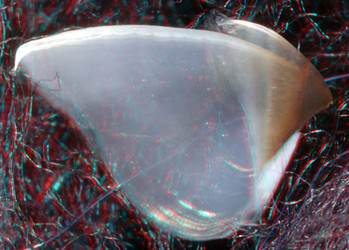
Figure. Side view of the upper beak of V. richardi, immature male, 90 mm ML, 1.8 mm HL, 4.4 mm CL, Hawaiian waters. Photograph by R. Young.

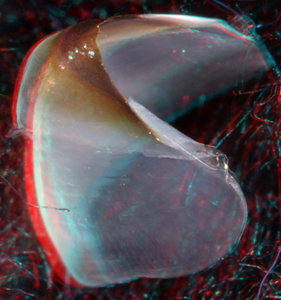
Figure. Oblique view of the upper beak of V. richardi, immature male, 90 mm ML, 1.8 mm HL, 4.4 mm CL, Hawaiian waters. Photograph by R. Young.

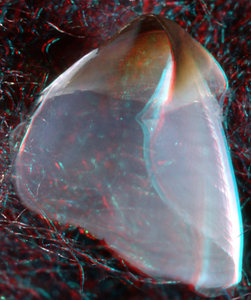
Figure. Oblique view of the upper beak of V. richardi, immature male, 90 mm ML, 1.8 mm HL, 4.4 mm CL, Hawaiian waters. Photograph by R. Young.

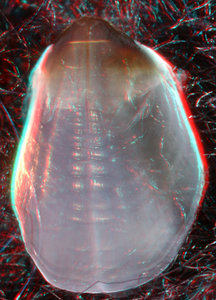
Figure. Oral view of the upper beak of V. richardi, immature male, 90 mm ML, 1.8 mm HL, 4.4 mm CL, Hawaiian waters. Photograph by R. Young.

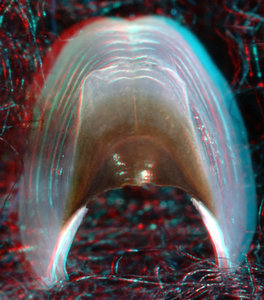
Figure. "Top" view of the upper beak of V. richardi, immature male, 90 mm ML, 1.8 mm HL, 4.4 mm CL, Hawaiian waters. Photograph by R. Young.

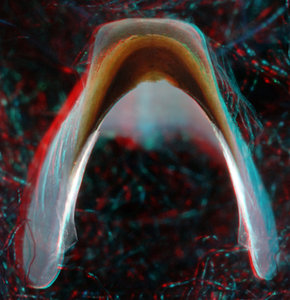
Figure. Front view of the upper beak of V. richardi, immature male, 90 mm ML, 1.8 mm HL, 4.4 mm CL, Hawaiian waters. Photograph by R. Young.

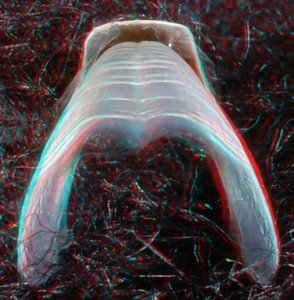
Figure. Posterior view of the upper beak of V. richardi, immature male, 90 mm ML, 1.8 mm HL, 4.4 mm CL, Hawaiian waters. Photograph by R. Young.




 Go to quick links
Go to quick search
Go to navigation for this section of the ToL site
Go to detailed links for the ToL site
Go to quick links
Go to quick search
Go to navigation for this section of the ToL site
Go to detailed links for the ToL site